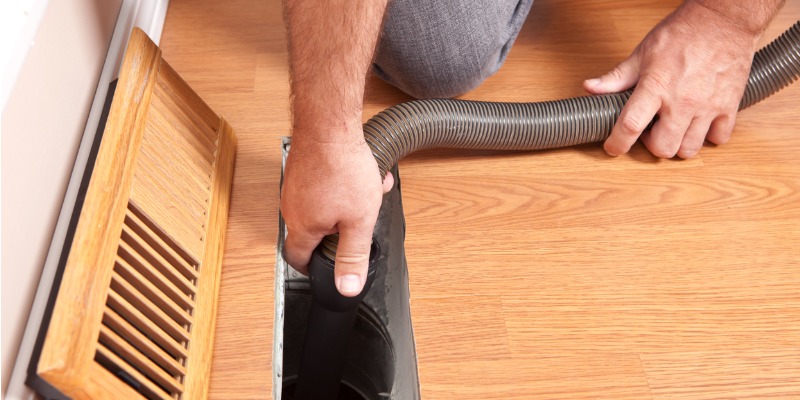Understanding the difference between a heat pump and an HVAC system is crucial for homeowners and businesses seeking to make informed decisions about their heating and cooling needs. Both systems play a pivotal role in achieving comfort within interiors, but they do so in different ways. With energy efficiency and sustainability becoming increasingly important, choosing the right system requires a thorough understanding of how each one works.
This article will dive deep into the fundamentals of heat pumps and HVAC systems, address their respective advantages and disadvantages, and help you decide which system might suit your specific needs best.

Understanding Heat Pumps
A heat pump is an innovative device that provides both heating and cooling functions. Unlike traditional heating systems that generate heat, heat pumps transfer it from one place to another, offering an efficient way to regulate the temperature.
How Do Heat Pumps Work?
Heat pumps work by extracting heat from the air, ground, or water and relocating it to your homes interior during colder months and reversing the process during warmer months. According to IntechOpen’s research, they are highly energy-efficient because they do not generate heat but instead move it.
Types of Heat Pumps
- Air Source Heat Pumps These are the most common and transfer heat between the home and the outside air.
- Geothermal Heat Pumps Also known as ground-source pumps, they transfer heat between the home and the ground.
- Water Source Heat Pumps These pumps exchange heat between water sources such as lakes or aquifers and the home.
Understanding HVAC Systems
HVAC stands for Heating, Ventilation, and Air Conditioning. These systems are essential for controlling the indoor environment and maintaining comfort levels by regulating temperature and air quality.
Components of HVAC Systems
- Heating Furnaces, boilers, and heat pumps that provide warmth.
- Ventilation Systems to circulate and purify air within a building.
- Air Conditioning Systems to cool and dehumidify indoor spaces.
HVAC systems are complex and consist of multiple components that work together to both heat and cool a space. For more information, see the insights on how HVAC systems work.
Key Differences Between Heat Pumps and HVAC Systems
Efficiency and Cost
Heat pumps are known for their energy efficiency, often reducing electricity use by approximately 50% compared to resistance heating such as furnaces. HVAC systems, on the other hand, can be less efficient as each component operates distinctly.
Operational Methods
While a heat pump can both heat and cool a home, an HVAC system typically relies on separate units to perform these functions. The integration within heat pumps offers a more sustainable and user-friendly approach to climate control.
Choosing the Right System for Your Home or Business
Factors to Consider
- Climate Heat pumps excel in moderate climates, whereas more extreme temperatures might necessitate a robust HVAC system.
- Cost and Budget Generally, heat pumps have lower operational costs, but initial setup can be expensive.
- Space Requirements Consideration of available space in your property for equipment installation is critical.
Consider consulting experts or companies like Sky Clean Air for detailed installation costs for both systems in your locality.
Installation and Maintenance
The intricate nature of these systems requires professional installation to ensure optimal performance. Regular maintenance checks can prolong the lifespan of both heat pumps and HVAC systems, allowing them to run efficiently with minimal disruptions.
Maintaining Heat Pumps
Yearly inspections, changing filters, and having components checked for wear and tear can greatly enhance a heat pumps longevity and efficiency.
Maintaining HVAC Systems
Regular maintenance of HVAC systems involves checking ducts, filters, and ensuring each component like the furnace and air conditioner is functioning correctly. Companies such as Sky Clean Air offer comprehensive maintenance plans.
Environmental Impacts
Heat pumps are considered a more environmentally friendly option compared to traditional HVAC systems due to their lower green-house gas emissions and energy use. They align closely with sustainable living goals.
Conclusion
Choosing between a heat pump and an HVAC system can seem daunting, but understanding the core differences in efficiency, cost, operational methods, and environmental impacts can guide your decision. It is essential to consider the climate, budget, and specific needs of your home or business before making an informed decision.

FAQs
Are heat pumps suitable for colder climates?
Modern advancements have made heat pumps viable for colder climates, but supplemental heating or enhanced models might be necessary.
What is the lifespan of these systems?
Heat pumps can last approximately 15 years with proper maintenance, while HVAC systems have a slightly longer average lifespan of 15 to 20 years.
Can I replace individual components of an HVAC system?
Yes, you can replace individual components such as the furnace or air conditioning unit, but compatibility and efficiency should always be considered. Consulting resources like Sky Clean Air can offer insights into high-efficiency HVAC options.
This article contains affiliate links. We may earn a commission at no extra cost to you.






